 W
WSir Thomas Arundell of Wardour Castle in Wiltshire was a Cornish administrator and alleged conspirator.
 W
WSir Robert Broke SL was a British justice, politician and legal writer. Although a landowner in rural Shropshire, he made his fortune through more than 20 years' service to the City of London. MP for the City in five parliaments, he served as Speaker of the House of Commons in 1554. He is celebrated as the author of one of the Books of authority. A prominent religious conservative, he founded a notable recusant dynasty. His surname is also rendered Brooke, and occasionally Brook, which are, for modern readers, better indicators of pronunciation.
 W
WSir Thomas Bromley was an English judge of Shropshire landed gentry origins who came to prominence during the Mid-Tudor period. After occupying important judicial posts in the Welsh Marches, he won the favour of Henry VIII and was a member of Edward VI's regency council. He was appointed Chief Justice of the King's Bench by Mary I.
 W
WSir William Cavendish MP was an English politician, knight and courtier. Cavendish held public office and accumulated a considerable fortune, and became one of Thomas Cromwell's "visitors of the monasteries" during the dissolution of the monasteries. He was MP for Thirsk in 1547. In 1547 he married Bess of Hardwick, and the couple began the construction of Chatsworth House in 1552, a project which would not be completed until after his death. His second son William Cavendish (1552–1626) became the first Earl of Devonshire, purchasing his title from the impecunious King James I.
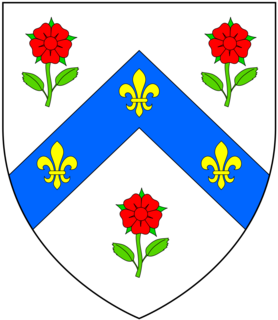 W
WSir Anthony Cope of Hanwell, near Banbury, was an English author.
 W
WThomas Cromwell, 1st Earl of Essex, was an English lawyer and statesman who served as chief minister to King Henry VIII from 1532 to 1540, when he was beheaded on orders of the king.
 W
WSir Maurice Denys (1516–1563) of Siston Court, near Bristol, Gloucestershire, and of St John's Street, Clerkenwell, Middlesex, was an English lawyer and property speculator during the Dissolution of the Monasteries, at which time he served as a "powerful figure at the Court of Augmentations". He served as a Member of Parliament for Malmesbury in Wiltshire and as Treasurer of Calais. He was the builder of Siston Court in Gloucestershire, which survives largely unaltered since his time. His excessive speculation and borrowing caused the ruination of the Siston branch of the Denys family.
 W
WHugh Faringdon, earlier known as Hugh Cook, later as Hugh Cook alias Faringdon and Hugh Cook of Faringdon, was a Benedictine monk who presided as the last Abbot of Reading Abbey in the English town of Reading. At the dissolution of the monasteries under King Henry VIII of England, Faringdon was accused of high treason and executed. He was declared a martyr and beatified by the Catholic Church in 1895.
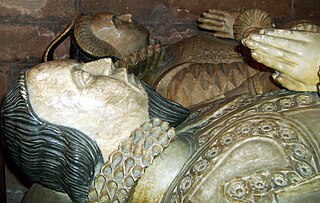 W
WJohn Giffard (1534–1613) was a Staffordshire landowner and Member of the English Parliament, notable as a leader of Roman Catholic Recusancy in the reigns of Elizabeth I and James I.
 W
WSir Thomas Giffard was a Tudor courtier, Staffordshire landowner and Member of the English Parliament.
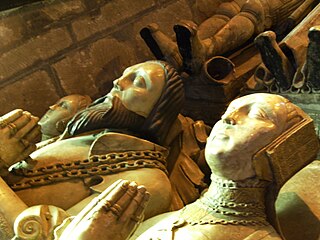 W
WSir John Giffard, of Chillington in Brewood, was a soldier, courtier, member of the English Parliament and Staffordshire landowner, who made his mark mainly during the reign of Henry VIII.
 W
WHenry VIII was King of England from 1509 until his death in 1547. Henry is best known for his six marriages, and, in particular, his efforts to have his first marriage annulled. His disagreement with Pope Clement VII on the question of such an annulment led Henry to initiate the English Reformation, separating the Church of England from papal authority. He appointed himself Supreme Head of the Church of England and dissolved convents and monasteries, for which he was excommunicated. Henry is also known as "the father of the Royal Navy," as he invested heavily in the navy, increasing its size from a few to more than 50 ships, and established the Navy Board.
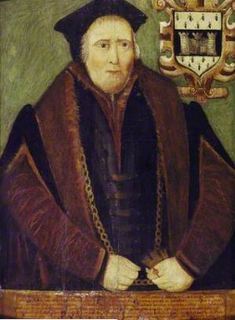 W
WSir Rowland Hill of London and Soulton Hall was the first Protestant Lord Mayor of London. He was a merchant, statesman, and philanthropist.
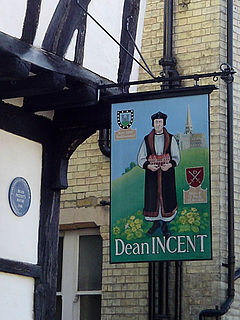 W
WJohn Incent was an English clergyman in the early 16th century, during the early years of the English Reformation. Originating from the town of Berkhamsted in Hertfordshire, he studied at the University of Cambridge and later at All Souls College, Oxford, and served as Dean of St Paul's Cathedral in London between 1540 and 1545.
 W
WSir William Kingston, KG was an English courtier, soldier and administrator. He was the Constable of the Tower of London during much of the reign of Henry VIII. Among the notable prisoners he was responsible for were Queen Anne Boleyn, as well as the men accused of adultery with her. He was MP for Gloucestershire in 1529 and 1539.
 W
WEdward Littleton or Edwarde Lyttelton was a Staffordshire landowner from the extended Littleton/Lyttelton family. He also served as soldier and Member of Parliament for Staffordshire in the House of Commons of England, the lower house of the Parliament of England, five times.
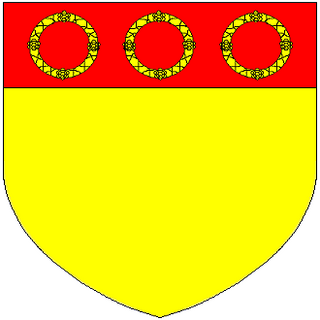 W
WSir Richard Morrison was an English humanist scholar and diplomat. He was a protégé of Thomas Cromwell, propagandist for Henry VIII, and then ambassador to the German court of Charles V for Edward VI.
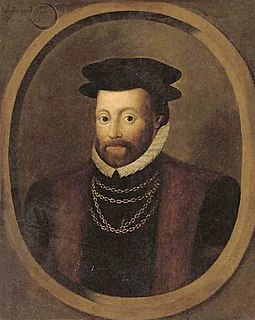 W
WEdward North, 1st Baron North was an English peer and politician. He was the Clerk of the Parliaments 1531–1540 and Lord Lieutenant of Cambridgeshire 1557–1564. A successful lawyer, he was created the first Baron North, giving him a seat in the House of Lords.
 W
WSir Hugh Paulet of Hinton St. George in Somerset, was an English military commander and Governor of Jersey.
 W
WAlan Percy (c.1480-1560) was an English churchman and academic, Master of St John's College, Cambridge, and later Master of Trinity College, Arundel which he surrendered to Henry VIII in 1545.
 W
WSir William Petre was Secretary of State to three successive Tudor monarchs, namely Kings Henry VIII, Edward VI and Queen Mary I. He also deputised for the Secretary of State to Elizabeth I.
 W
WSir Richard Pollard, was Member of Parliament for Taunton in 1536, and for Devon in 1540 and 1542. He played a major role in assisting Thomas Cromwell in administering the Dissolution of the monasteries.
 W
WSir John Prise (1501/2–1555) was a Welsh public notary, who acted as a royal agent and visitor of the monasteries. He was also a scholar, associated with the first Welsh printed publication Yn y lhyvyr hwnn. He was a Member (MP) of the Parliament of England for Breconshire in 1547; Hereford October 1553; Ludlow April 1553; and Ludgershall November 1554.
 W
WSir William Sharington was an English courtier of the time of Henry VIII, master and embezzler of the Bristol Mint, member of parliament, conspirator, and High Sheriff of Wiltshire.
 W
WWilliam FitzWilliam, 1st Earl of Southampton, KG, English courtier and soldier, was the third son of Sir Thomas FitzWilliam of Aldwark and Lady Lucy Neville, daughter of John Neville, 1st Marquess of Montagu.
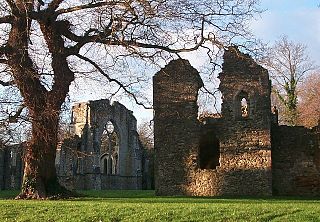 W
WThomas Stevens, Abbot of Netley Abbey and later of Beaulieu Abbey; was an English and Cistercian monk and clergyman. As abbot of Netley and later of Beaulieu he had the right to a seat in the House of Lords.
 W
WHumphrey Swynnerton was a Staffordshire landowner, a Member of the English Parliament and an Elizabethan recusant.
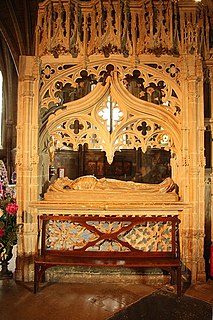 W
WJohn Wakeman was an English Benedictine, the last Abbot of Tewkesbury and first Bishop of Gloucester, both posts in the English county of Gloucestershire. In the earlier part of his life he went by the name John Wiche.
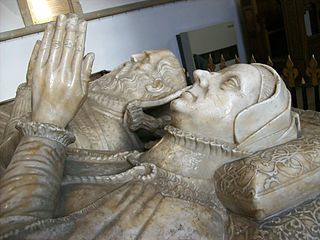 W
WJohn Williams, 1st Baron Williams of Thame was Master of the Jewels and Lord President of the Council of the Welsh Marches. He was summoned to parliament as Lord Williams of Thame on 17 February 1554.
 W
WSir Richard Williams, also known as Sir Richard Cromwell, was a Welsh soldier and courtier during the reign of Henry VIII. He was a maternal nephew of Thomas Cromwell, and profited from the Dissolution of the Monasteries in which he took an active part. He was the patrilineal great-grandfather of Oliver Cromwell.